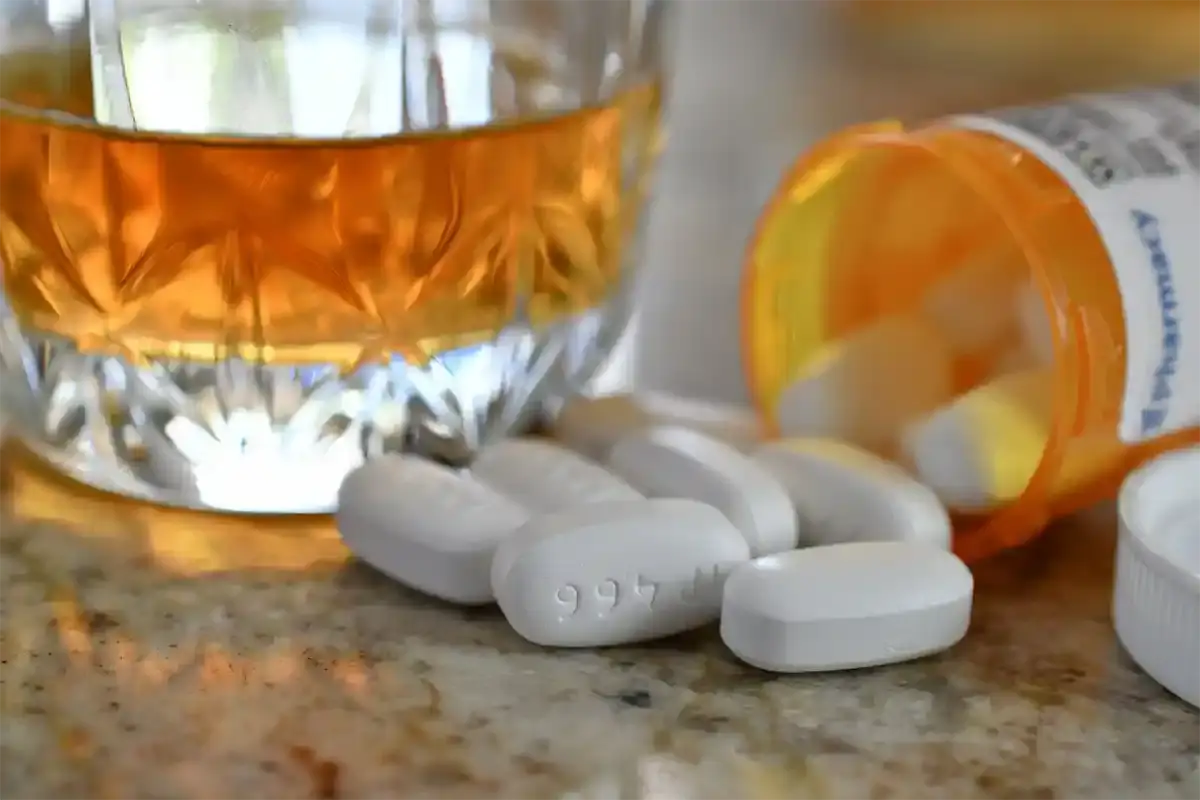Many people have an alcohol habit be it occasionally or regularly, especially in hard cold regions. Medication consumption with alcohol happens voluntarily or involuntarily but ultimately, it yields interactions, especially if you are consuming it with NSAIDs such as Aspirin; let’s get into detail on how it affects the body. Aspirin is well known for treating toothache, pain, fever, and inflammation.
It is also known as a blood thinner also used to avoid strokes. Aspirin lower blood pressure also reduces the chances of heart attacks.
How Does Aspirin Act On The Body?
As NSAID
It inhibits the formation of prostaglandins. Prostaglandins are made up of fats and are responsible for inflammation, pain, and fever.
The enzyme which forms prostaglandins is COX (cyclo-oxygenase). COX enzyme exists in COX-1 and COX-2 form. So, Aspirin inhibits the COX enzyme, which ultimately stops the production of prostaglandins.
As Blood thinner
Aspirin acts as a blood thinner by preventing clot formation. Blood clots are formed when platelets aggregate and form a cluster together. Aspirin acts as an antiplatelet agent and reduces clots' formation by slowing down platelet activity.
Does Alcohol Have To Be Avoided During Medication?
Yes, alcohol should be avoided during medication. Mixing alcohol with medicines is very dangerous. When you drink alcohol, it nullifies the effect of medicine or makes the side effects worse. Types of adverse effects depend on the medication you have taken. This combination has many harmful effects on your body organs.
Why Should You Avoid Aspirin And Alcohol?
Alcohol can increase gastric acid secretions and cause heartburn and upset stomach. There are various reasons to avoid mixing alcohol with Aspirin:
- Increased risk of stomach & intestinal bleeding
- Nausea
- Vomiting
- Ulcers
- Heartburn
- Upset stomach
It also depends on the quantity of alcohol you are mixing with Aspirin. Such as, if you take large quantities and for a prolonged time, there is the risk of blood loss and even life-threatening anemia, leading to death.
What Effect On The Body Can You Face In This Mixture?
The digestion of alcohol is delayed when you take Aspirin. Alcohol stays longer in your body than usual. It can lead to serious side effects on your body, such as:
- Gastrointestinal bleeding
- Indigestion
- Nausea and vomiting
- Headaches
- Drowsiness
- Dizziness
- Altered behavior
- Poor concentration
- Liver damage
- Kidney damage
Can You Drink Beer And Aspirin Together?
Through clinical studies, it has been suggested that you can drink an extremely small amount of beer and keep at least a maximum gap of 12 hours while taking Aspirin. A small amount of beer is usually considered safe.
However, it also depends on the health condition of the patient. If you are already facing serious stomach disorders, such as ulcers, this combination will be very dangerous. It can lead to severe blood loss and even death can happen. It is not advisable to drink beer with Aspirin to avoid life-threatening side effects.
When Can You Drink After Taking Aspirin?
There are no extensive studies on how long one should wait to drink after taking Aspirin. It is unsafe to drink alcohol while you are drinking. However, it has been suggested that one should wait for at least 12 hours or even a day to drink alcohol. Only drinking small amounts of alcohol is usually considered safe, that too with a gap while taking Aspirin.
Conclusion
A combination of alcohol with Aspirin can create hassles when you drink limitlessly. Avoid drinking alcohol while taking Aspirin. Mixing Aspirin with alcohol is dangerous when you already have kidney and liver impairment. This combination can lead to life-threatening side effects.
However, it has been suggested that a healthy person (with no serious medical history) can drink a small amount of alcohol with Aspirin through gaps.



 24 Nov 2022
24 Nov 2022


